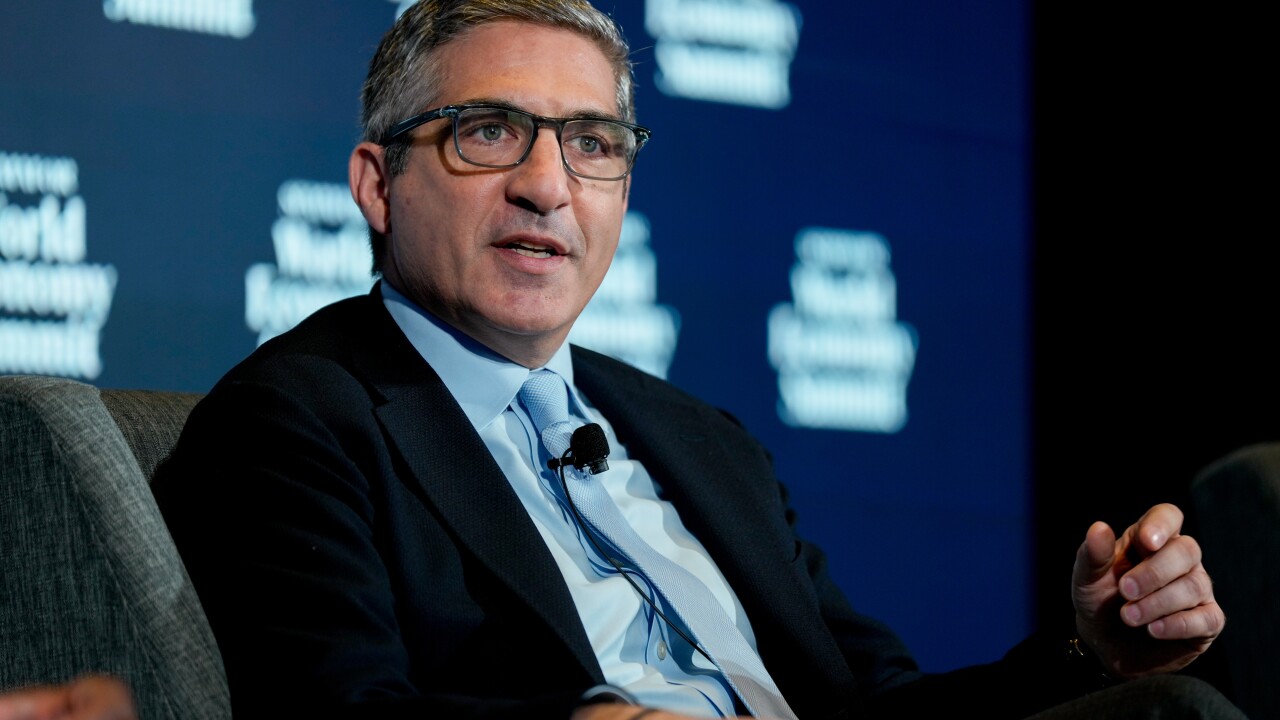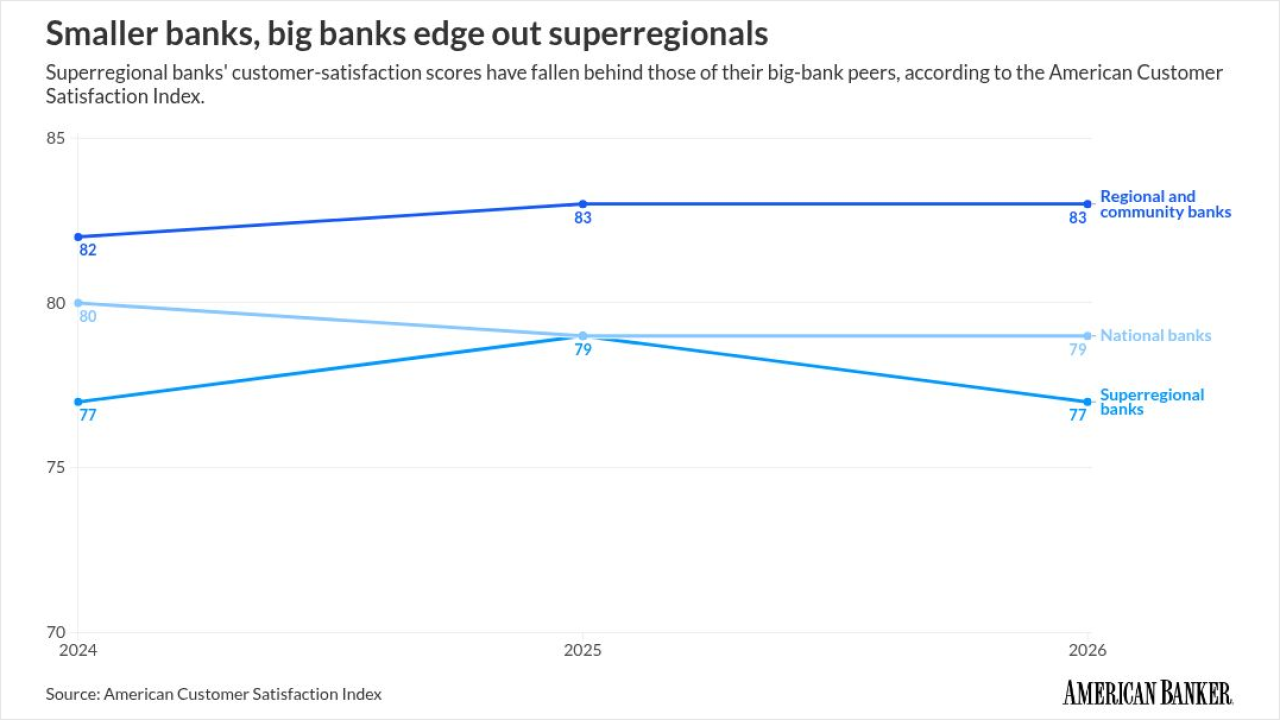-
As consumer panel questions Obama administration's choices for FDIC, Fed and other agencies, Sen. Richard Shelby says nominees will be chosen "on their merits."
March 20 -
Senate Minority Leader Mitch McConnell on Wednesday sharply denounced President Obama's recess appointment of Richard Cordray to head the Consumer Financial Protection Bureau.
January 4 -
Senate GOP leaders moved to block the confirmations of Marty Gruenberg, Tom Hoenig and Thomas Curry because the Obama administration refused to promise it wouldn't use its recess appointment powers for the CFPB and other agencies.
December 19
WASHINGTON — Before leaving for recess Thursday, the Senate confirmed Martin Gruenberg, Thomas Hoenig and Jeremiah Norton to seats on the board of the Federal Deposit Insurance Corp. while also approving Thomas Curry as comptroller of the currency.
But in an unusual move, the Senate did not confirm Gruenberg as chairman of the FDIC, or Hoenig as the agency's vice chair. Instead, the chamber left Gruenberg as the agency's vice chairman, allowing him to continue to lead the agency in an acting capacity.
The situation sparked immediate head-scratching as Washington, as industry observers tried to dissect what was going on. The move, which occurred by unanimous consent of the Senate, represents a middle ground between the across-the-board approval of financial regulatory nominees that Senate Democrats were seeking and a refusal to move forward on any nominees by Senate Republicans given lingering anger over President Obama's controversial recess appointment of Richard Cordray to the Consumer Financial Protection Bureau.
But it also likely reflects the political realities of a presidential election year. Confirming Gruenberg as chair of the FDIC would have left him as leader of the agency for several years, well into a potential Republican administration, should the party's presidential candidate win the election this year.
By confirming Gruenberg for a board seat — but not the chairmanship — Republicans have guaranteed his ability to lead the agency in an acting capacity for the foreseeable future, but left themselves the flexibility to nominate their own FDIC chairman if they win the White House.
While Senate Republicans have never doubted Gruenberg's qualifications to serve as FDIC chair, some have privately expressed reservations about the former Democratic Senate Banking aide, viewing him as too liberal. Although Gruenberg tends to be cautious in public, he can be dogged and determined behind the scenes, making him a potentially forceful chairman. By keeping him as acting chair, Republicans may be hoping to curb any of Gruenberg's more ambitious undertakings.
Still, the Senate's moves means the FDIC board will have all five seats filled. Gruenberg's board term was extended, while Hoenig and Norton were each confirmed as board directors. Curry, who previously held an independent seat on the FDIC, will remain on the board as the now-confirmed head of the OCC. (Cordray, whom the administration recess-appointed to lead the CFPB in January, holds the fifth seat.)
In a statement, Gruenberg — referring to himself, Hoenig and Norton — said, "The Senate confirmation of the three pending FDIC nominees gives the Corporation a complete five-member board and provides additional stability and continuity moving forward.
"This is an important step as the FDIC continues to respond to a number of challenging issues and continues with the rulemaking process," he added. "I welcome the two new internal directors to the FDIC — Thomas Hoenig and Jeremiah Norton — and look forward to working with them as I continue in my role as Acting Chairman. I would also like to recognize Tom Curry for his dedicated service to the FDIC and am very pleased that we will continue to work together in his capacity as Comptroller of the Currency and FDIC board member."
In addition to the lingering uncertainty at the FDIC, the Senate did not vote to confirm two nominees to the Federal Reserve Board or a head of the new Office of Financial Research.
The Senate Banking Committee voted Thursday to approve the nominations of Jerome Powell and Jeremy Stein to the Fed, as well as Richard Berner to the OFR. (The panel also voted to confirm Christy Romero as special inspector for the Troubled Asset Relief Program, who was later confirmed by the Senate.)
During the panel vote, Republican Sens. David Vitter and Jim Demint opposed the two Fed nominees, a signal that the Senate would not come to unanimous agreement on those nominees.
The impasse over financial regulatory nominees has been closely intertwined with the partisan dispute over the CFPB and, ultimately, President Obama's recess appointment of Cordray to head the bureau.
Gruenberg was nominated to chair the FDIC in June 2011, and Curry was nominated as comptroller the following month. Even though neither nominee aroused GOP opposition, Senate Minority Leader Mitch McConnell blocked votes on their nominations in December, explaining his decision by saying that President Obama had refused to promise not to install Cordray with a recess appointment.
The following month, Obama did install Cordray with a recess appointment, sparking anger among congressional Republicans.
Thursday's confirmations were welcomed by Senate Banking Committee Chairman Tim Johnson.
"It is vital that we have strong leaders in place at our financial regulators as we continue our economic recovery, continue implementation of the Wall Street Reform Act, and are faced with challenges from the crisis in Europe," Johnson said in a press release. "I'm glad that the Senate was able to set aside partisan politics and approve these individuals."





